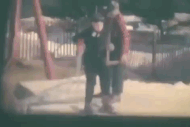
http://www.amazon.com/exec/obidos/ASIN/1578051029
Book Description
In this impassioned exposé, lifelong skier Hal Clifford reveals how publicly traded corporations gained control of America's most popular winter sport during the 1990s, and how they are gutting ski towns, the natural environment, and skiing itself in a largely futile search for short-term profits.
Chronicling the collision between Wall Street's demand for unceasing revenue growth and the fragile natural and social environments of small mountain communities, Clifford shows how the modern ski industry promotes its product as environmentally friendly--even invoking the words and emblems of such environmental icons as Ansel Adams and John Muir--while at the same time creating urban-style problems for mountain villages. He also uncovers the ways in which resorts are carefully engineered to separate visitors from their money, much like theme parks.
Clifford suggests an alternative to this bleak picture in the return-to-the-roots movement that is now beginning to find its voice in American ski towns from Mammoth Lakes, California, to Stowe, Vermont. He relates the stories of creative business people who are shifting control of the ski business back to the communities that host it.
Hard-hitting and carefully researched, Downhill Slide is indispensable reading for anyone who lives in, visits, or cares about what is happening to America's alpine communities.
About the Author
Hal Clifford is the author of The Falling Season: Inside the Life and Death Drama of Aspen's Mountain Rescue Team, winner of the Colorado Council for the Arts Prize for Best Non-Fiction, and Highroad Guide to the Colorado Mountains. His work has appeared in the New York Times Magazine, Business Week, National Geographic Adventure, Outside, and Orion. A former editor of the Aspen Daily News and Ski Magazine, Clifford currently serves as Executive Director of Mountainfilm in Telluride, Colorado.
http://www.halclifford.com/


